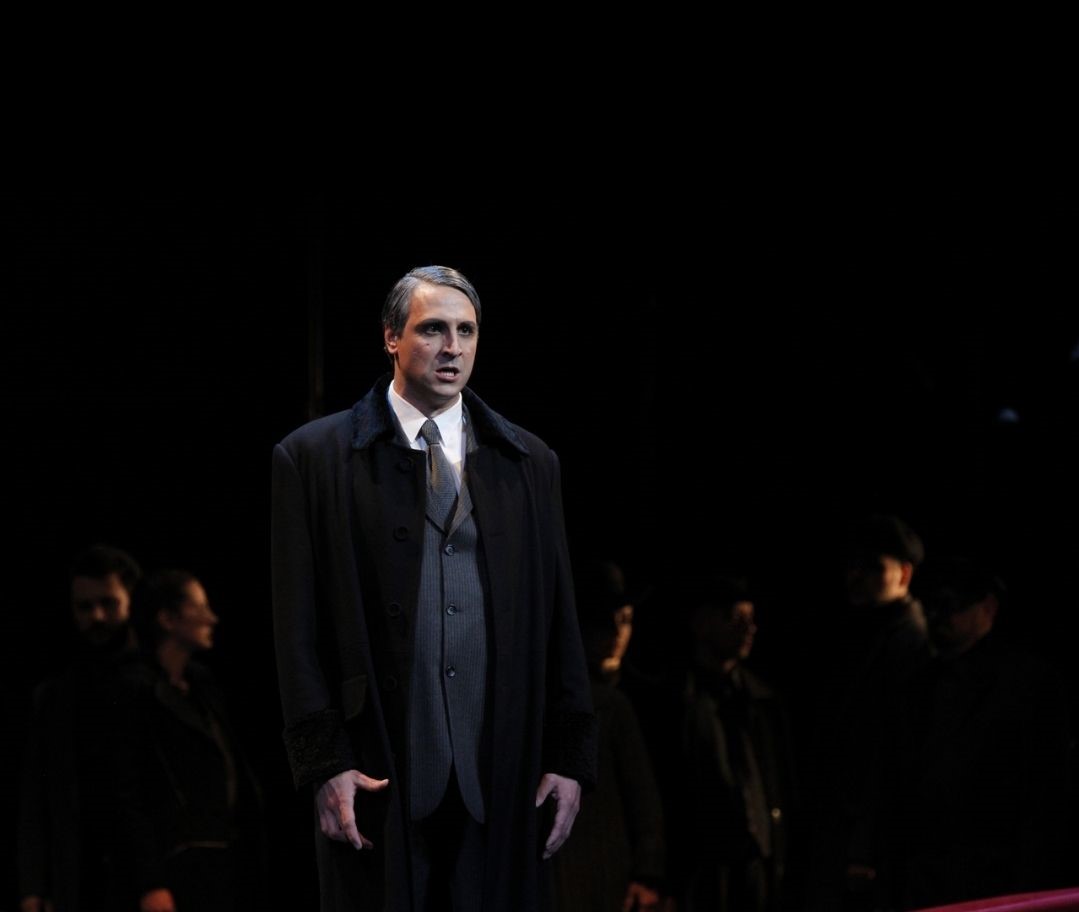To all the young voices who want to compete, the advice of someone who has already gone through this experience at the “Zinka Milanov” International Competition for Young Singers in Rijeka and who is successfully establishing a career is invaluable. We spoke with former contestant and successful bass-baritone Luka Ortar, who since “Zinka Milanov” has performed in a number of notable roles: Escamillo (Carmen), Figaro (Le nozze di Figaro), the King of Egypt (Aida), Colline (La Bohème), Montano (Otello), Avenant (La Belle et la Bête), Sulejman (Nikola Šubić Zrinjski), King of Marche (Tristan und Isolde), Achilla (Giulio Cesare in Egitto), the Duke of Verona (Roméo et Juliette), Cesare Angelotti (Tosca), Doctor Bombasto (Arlecchino), Betto di Signa (Gianni Schicchi), and more. Luka is a soloist of the Rijeka Opera.
How does one prepare for the competition and deal with the nervousness and excitement? How does one select the arias?
Through practice. (Laughs) It’s important to choose a program you are comfortable with and to prepare as well as possible. It is also important to be relaxed as possible and have fun as you sing, to have the desire to enjoy yourself on the stage. That’s the key. I learned that the most important thing isn’t just the technical and vocal perfection, but also how you convey energy to the jury and the audience.
How did opera come into your life?
When I was a kid, I hated both opera and singing. Then a friend brought me into choir. I thought it was something easy – that it was easy to sing, that you just hear and sing what others do. That’s how I imagined it then, but I quickly realized that was not the case. After that, I wondered why that is and why singing isn’t easy. I’m still here. I’m still learning. (Laughs)
Why is it important in the opera world to take part in competitions?
It’s an opportunity to present yourself; there are people present whose attention is worth attracting, and it is worthwhile to prepare and come to the “door” that opens possibilities for collaboration. Everyone has their own way. One of the ways to get started and succeed is definitely through competitions. Not to the extent that you just go to competitions, spend money on travel and accommodation and don’t achieve anything. You have to work hard and really want it. There are also people in the jury who really mean something in the opera world, who can give key advice and who can be key to your career. I know people who have succeeded without competitions, and I know others who precisely through competitions achieved success. Greatly. Renowned competitions are certainly important references. There are no rules. It’s useful to have a goal, if you take it seriously and treat it as something important to you, then you’re more relaxed in every competitions and you feel better and better. Then it all makes sense.
What do you consider to be the advantages and beauties of an opera singer’s job?
When you’re on the stage, you can give everything you have and be all that you are. You can be completely honest. There are few things that can spoil that. In other jobs you need to be a diplomat, be careful of so much, while on stage you don’t have to. You can get into character, and the more you “take off,” the less of a diplomat you are. That makes the biggest difference and that’s what I love.
You’re a member of the Rijeka Opera ensemble. Which roles are you preparing?
We are renewing Tristan und Isolde, in which I perform as King Marche, and I play Achilla in the opera Giulio Cesare in Egitto, with which we will be performing at the prestigious Savonlinna Festival in Finland. For next season, I am already working on the role of King Philip in Don Carlo. I wouldn’t talk about the rest yet.
What other roles would you like to perform in your career?
I enjoy every role. Of course, not everything is for everyone. I am open to all character roles with a dramatic singing background, a melodiousness in the role. I am not particularly into comic operas, honestly, but I do not limit myself in any sense. I go where the path leads me and remain open to everything.
Conversation with Andrea Labik


